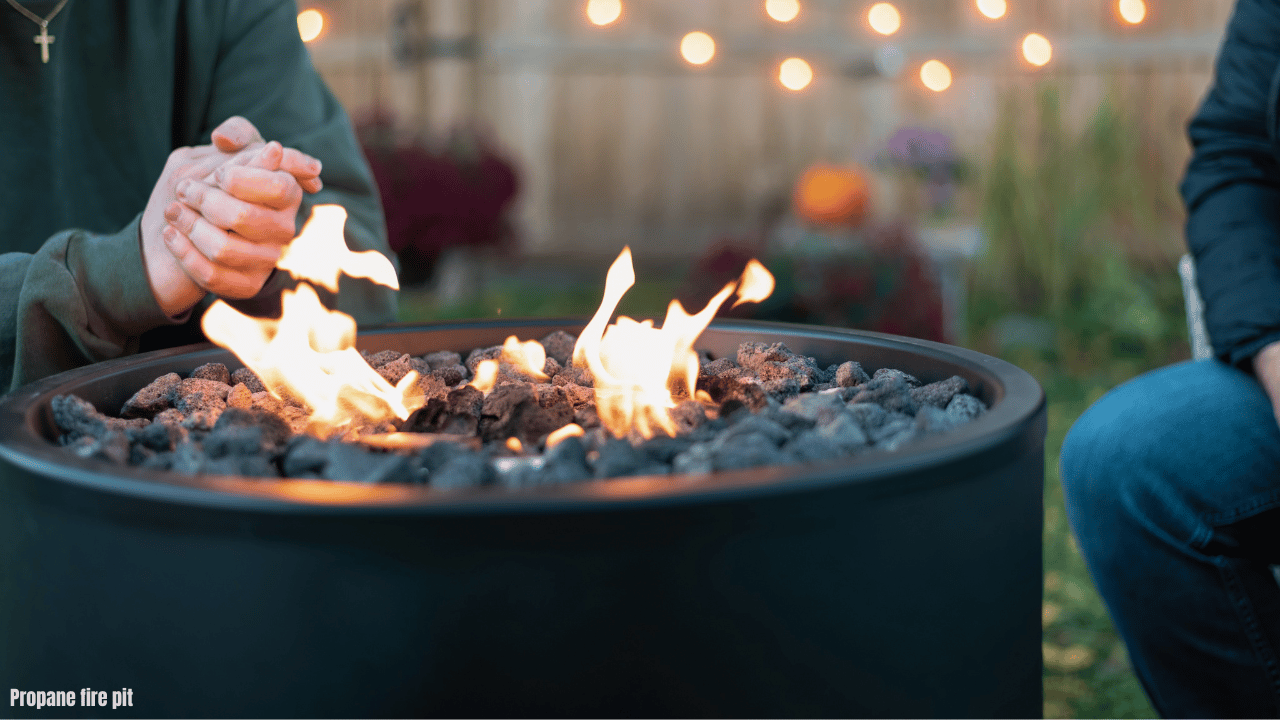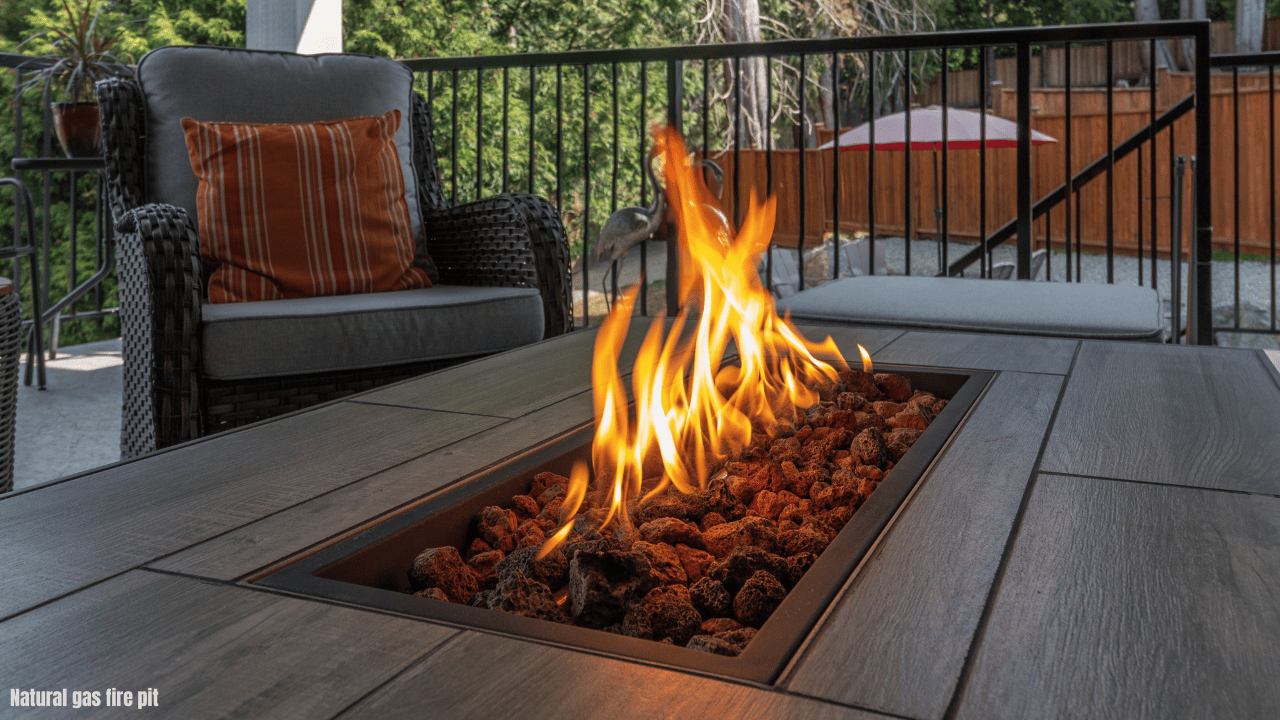There's nothing more amazing than having a fire pit if you want to heat things in your backyard. Imagine an autumn night surrounded by friends and family gathered around a warm and inviting fire pit. Pretty awesome right?
As such, a fire pit is becoming more of a must-have for many homeowners in the country. And if we talk about fire pits, propane and natural gas fire pits may be the first two that come to mind.
Propane and natural gas fire pits are both popular options for outdoor heating and ambiance, but they have their unique benefits and drawbacks.
Propane fire pits are incredibly easy to use and do not produce ash, soot, or smoke. They are also generally considered safer than wood-burning fire pits, as there is no risk of sparks or embers flying out and potentially causing a fire.
Meanwhile, gas-powered fire pits offer continuous heat, ease of use, and versatility–as they come in various shapes, sizes, and styles. Choosing between a propane or a natural gas fire pit depends on your preferences and needs. Let's discuss some crucial factors to help you make the best decision (related: Best Fire Pit Tables To Bring Your Patio To Life).
What are Propane Fire Pits?
Whether it's the cleanliness, convenience, or modern look, there's no denying that propane fire pits have become a popular choice for outdoor gatherings and events. Many people appreciate their portability as they are not connected to the gas pipes in the home. Meaning, you can quickly change their location whenever you want.
They also have a much simpler installation process than natural fuel fire pits, requiring professional assistance as you typically want to ensure your gas pipes are good.
Smoke emissions from a propane fire pit are also far less than those from a fire pit made of natural wood, so its popularity in the market has steadily increased over the last few years.
Propane fire pit is the right choice for you if:
You do not want to deal with ash and smoke. With propane fire pits, gathering firewood or tending to the flames is unnecessary. Instead, the flames can be easily controlled with the flip of a switch or the turn of a knob. This allows for instant warmth and ambiance without any hassle.
You want the installation process to be a breeze. With a propane fire pit, there's hardly any elbow grease involved in its installation. Hook a propane tank up to the fire pit, and that's it! Additionally, you will ultimately control how much propane is utilized, and the flame's size is adjustable.
You want an environmentally-friendly choice. Propane fire pits are known to emit fewer pollutants and do not contribute to deforestation. Moreover, they can be used in areas where wood-burning fires are prohibited. This makes them a versatile and convenient option if you're fond of hosting outdoor gatherings!
You want great value for your money. Let's say you will sell your propane fire pit in the future. If that's the case, you can do so easily. Many people consistently seek used propane fire pits because they retain their worth.
You value your family’s safety. Propane fire pits are considered safer than wood-burning fire pits, given you won’t have to deal with sparks or embers flying out. These things are notorious for potentially causing a fire.
You want to save money. Purchasing a propane fire pit is relatively inexpensive. Also, installing or building a propane fire pit is less expensive than using only natural gas.
You want a versatile fire pit. Since propane fire pits can be used in many different settings, many appreciate their flexibility. For one, they are also portable, so they can be easily moved from place to place if necessary.
Yet despite their many advantages, you must consider a couple of drawbacks to a propane fire pit.
Some argue that propane fire pits lack a wood-burning fire's natural charm and authenticity.
And if you're planning to use your propane fire pit regularly, you must prepare yourself for more frequent refill trips. Lastly, portable propane fire pits, in general, need more maintenance.
What are Natural Gas Fire Pits?
Natural gas fire pits are an excellent choice if you want to enjoy the warmth of an outdoor fire minus the mess of a traditional wood-burning fire pit. These fire pits use natural gas connected to the home's gas line.
That said, homeowners do not need to worry about running out of fuel compared to having propane or a natural wood-burning fire pit. This is also a cost-effective choice in the long run, given you won't need to purchase wood or propane tanks regularly.
Natural gas fire pit is the right choice for you if:
You want a permanent fixture at home. Natural gas fire pits are the way to go if you want something more permanent. This will involve installing a permanent gas line. So if you don't have one, you will need to ask a professional to take care of the job – which comes at a cost.
You want an unlimited supply of gas. Although the installation can be costly, it can pay off in the long run, given you'll virtually have an endless supply of gas. Keep in mind that natural gas is cheaper than propane. And you'll also enjoy bigger and warmer fires.
You want easy controls. Natural gas fire pits are generally easy to use since they have a simple push-button ignition or knob that controls the flame. You can quickly turn on or turn off the flame with ease!
You want to be environmentally friendly. Natural gas is notably more ecologically friendly than propane. Because it's cleaner, burning it produces far fewer toxic emissions. Natural gas also has a relatively small amount of CO2 and CO.
You want a fire pit that can last for many years. Additionally, natural gas fire pits have excellent durability. Most homeowners can expect them to be in near-perfect condition for many years (given proper maintenance).
You want a cost-effective choice. Natural gas fire pits have a higher upfront cost due to their installation, but they are more cost-effective in the long run. Natural gas is generally less expensive than wood, and there are no continuing expenses for buying kindling or firewood.
You want to choose from a wide variety of designs. Natural gas fire pits are available in different shapes, sizes, and styles. In fact, many natural gas fire pits in the market feature decorative lava rocks, glass beads, or stones to enhance their overall aesthetic appeal.
Though natural gas fire pits present many advantages, there are also some drawbacks to consider:
Since they are usually fixed in place due to their gas line connection, they cannot be moved around the yard or patio as quickly. Also, natural gas might not be available or be in restricted supply in some areas.
Although it's cheaper than propane, installing a natural gas fire pit at home will be more expensive. You will need professional help for the installation as it is piped.
Before choosing which fire pit to install, examining the benefits and drawbacks of propane and natural gas fire pits is crucial. Both flame sources offer advantages and disadvantages, so the decision will ultimately depend on your preference.
As we always say, choose wisely!
(Related article: Can a Lanai be Added Onto a House)



